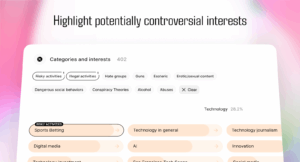With a bee in my bonnet, I did a Google site search of our forums today, to reveal more than 15,000 results containing the phrase thanks in advance
.
I hate that expression, it totally winds me up — because it isn’t really thanks at all. At best it’s an empty platitude; at worst it’s emotional blackmail.
To me, the phrase says one or all of these things:
- This is just what people say (meaningless)
- I’m assuming that you’re going to help me, therefore I’m thanking you now (presumptuous)
- I’m thanking you now so as soon as I get an answer I can forget about this thread (lazy, ungrateful)
- I’m not sure if you’re going to help me, so saying thanks now will encourage you to do so, because I’ve already thanked you (emotional blackmail)
Even worse, I occasionally see this phrase in txt msg speak, written as TIA
or thx
, and that’s even more of a wind-up — it’s not just presumptuous pseudo-gratitude, it’s lazy and illiterate. Doesn’t inspire me to help.
The proper time to thank someone is after they’ve helped you, because that’s when it actually means something. The fact that you had to be conscious enough to step outside your immediate concern, at a point when you no longer need anyone, in order to show gratitude — that’s what makes it real; that’s when I know you really mean it.
Frequently Asked Questions (FAQs) about Expressing Gratitude
What is the appropriate response when someone thanks me for something I’ve done?
When someone thanks you for something you’ve done, it’s polite to acknowledge their gratitude. You can respond with phrases like “You’re welcome,” “It was my pleasure,” or “I’m glad I could help.” It’s important to respond in a way that shows you appreciate their thanks and that you were happy to assist.
How can I express gratitude in a professional setting?
In a professional setting, expressing gratitude can be done verbally or in writing. You can thank someone in person, over the phone, or through email. Be specific about what you’re thanking them for and express how their actions or assistance benefited you.
What should I write in a thank you card?
When writing a thank you card, it’s important to be sincere and specific. Start by expressing your gratitude, then mention the specific thing you’re thankful for. You can also include a personal note or a comment about the future.
Is it polite to ask someone why they are thanking me?
It’s generally not considered polite to ask someone why they are thanking you. It might make them feel uncomfortable or as if their gratitude is being questioned. Instead, accept their thanks graciously and respond positively.
How can I thank someone for their time?
When thanking someone for their time, be specific about how they helped you and express your appreciation for their effort. You can say something like, “I really appreciate the time you took to help me with this. Your assistance made a big difference.”
How can I express gratitude without saying ‘thank you’?
There are many ways to express gratitude without saying ‘thank you’. You can say things like “I appreciate your help,” “I’m grateful for your assistance,” or “Your support means a lot to me.”
How can I respond to thanks in a humble way?
Responding to thanks in a humble way can be done by downplaying your role and redirecting the focus back to the person who thanked you. You can say things like “I was happy to help,” or “You would have done the same for me.”
What is the importance of expressing gratitude?
Expressing gratitude is important because it acknowledges the effort or kindness of others. It fosters positive relationships, promotes empathy, and contributes to overall happiness and well-being.
How can I teach my children to express gratitude?
Teaching children to express gratitude can start with leading by example. Show them how to say ‘thank you’ and explain why it’s important. You can also encourage them to write thank you notes or express gratitude in their daily lives.
Can expressing gratitude improve my mental health?
Yes, expressing gratitude can improve mental health. Studies have shown that gratitude can reduce stress, improve mood, and increase overall happiness. It encourages positive thinking and helps individuals focus on the good in their lives.
James is a freelance web developer based in the UK, specialising in JavaScript application development and building accessible websites. With more than a decade's professional experience, he is a published author, a frequent blogger and speaker, and an outspoken advocate of standards-based development.







